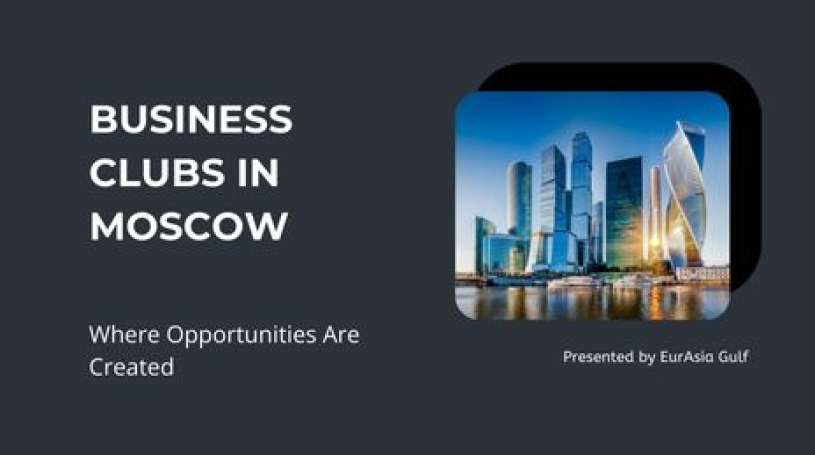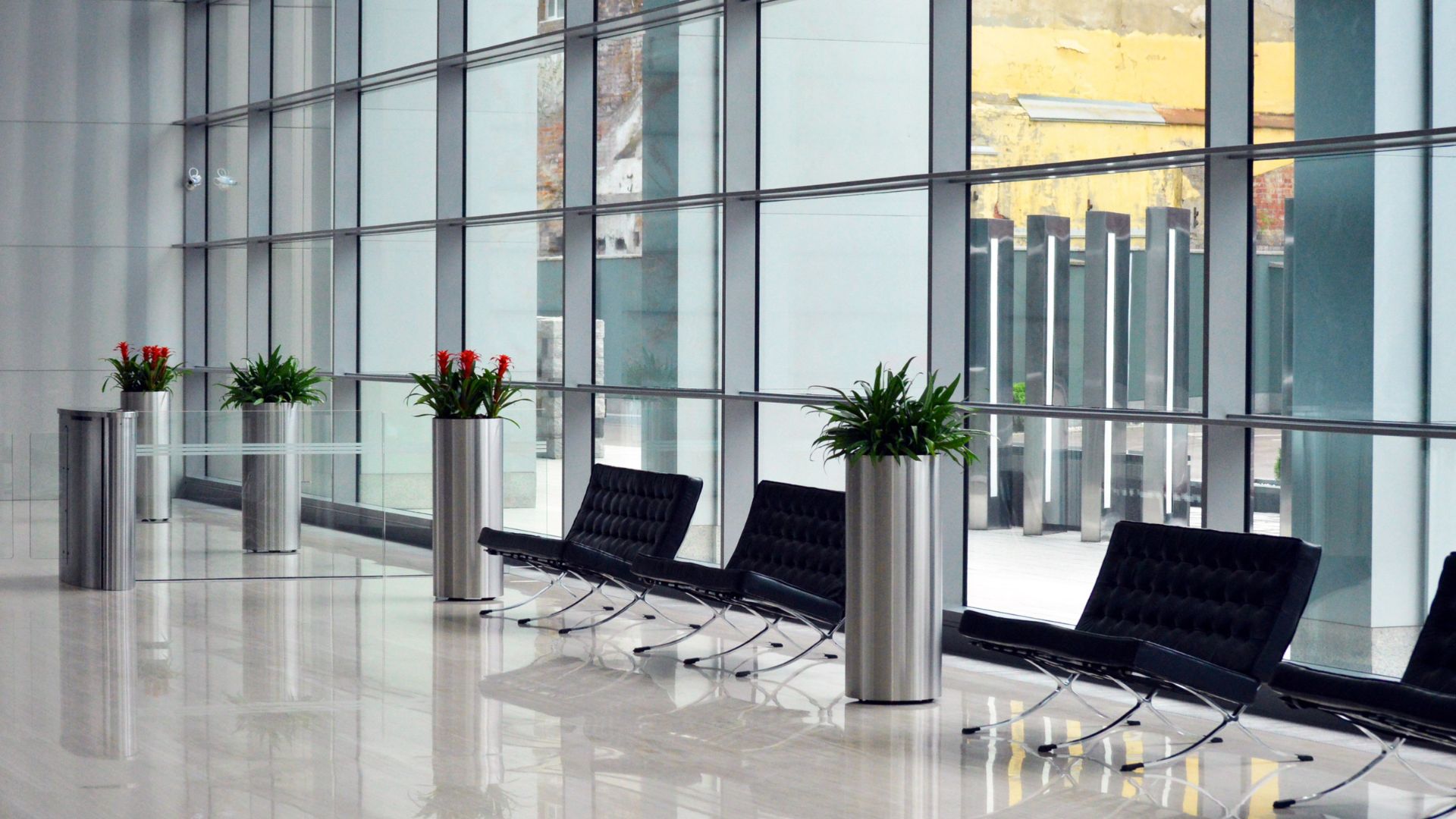Business Clubs in Moscow: Where Opportunities Are Created
Moscow is not only the political and cultural center of Russia but also a key city for business development. A rapidly growing economy and active business community have made the capital attractive to entrepreneurs, investors, and startups. One of the main driving forces behind Moscow's business environment are business clubs—exclusive communities where valuable connections can be made, mentors can be found, and access to unique opportunities is provided. In this article, we will explore the role of business clubs in Moscow and their impact on the city's business environment.
The Role and Importance of Business Clubs in Moscow
Business clubs in Moscow are more than just venues for entrepreneurs to meet. They provide a platform where professionals from various sectors can exchange ideas, enhance their skills, discuss potential collaborations, and find partners for new projects. A key feature of these clubs is the opportunity for informal communication, which greatly facilitates the establishment of long-term business relationships. In a constantly changing economy, these clubs have become essential tools for professional growth and maintaining relevance in the market.
Benefits of Moscow Business Clubs
Each business club in Moscow has its own unique characteristics and services, but there are several common benefits worth highlighting:
High-Level Networking. Business clubs offer access to exclusive events attended by industry leaders, entrepreneurs, investors, and government officials. Networking with those who have already achieved success allows members to expand their contacts and find potential partners and investors.
Exclusive Education and Mentorship. Moscow business clubs regularly host seminars and workshops led by renowned business leaders and experts. This helps club members develop their professional skills and enhance their knowledge.
Access to Investments. Some clubs provide their members with opportunities to present their projects to investors and venture capitalists, making them ideal platforms for startups and growing companies.
Closed-Door Events. Business clubs organize meetings with top executives, politicians, and opinion leaders, giving members access to unique insights and advice.
Leading Business Clubs in Moscow
Moscow's business landscape is rich with a variety of clubs, each offering its own unique advantages. Let’s look at ten of the top clubs that actively shape the city's business agenda.
Moscow Business Club
- Target Audience: Large-scale entrepreneurs and company executives.
- Main Activities: Closed-door meetings with government officials and international investors.
- Key Features: Famous for its business breakfasts, where current economic and business topics are discussed.
- Benefits for Members: Access to key figures in business and politics, as well as international opportunities.
Atlant Business Club
- Target Audience: Entrepreneurs aiming to transform the Russian business landscape.
- Main Activities: Mentorship programs for startups, educational initiatives.
- Key Features: Focus on supporting young companies and fostering the exchange of experiences between successful businesspeople.
- Benefits for Members: Access to mentorship, education, and exclusive opportunities for startups.
Skolkovo Club
- Target Audience: Technology companies and startups.
- Main Activities: Acceleration programs, venture financing, expert consultations.
- Key Features: Close collaboration with international corporations and investors.
- Benefits for Members: Access to global markets and cutting-edge technology.
Capital Business Club
- Target Audience: Financial sector representatives and large investors.
- Main Activities: Discussions on asset management and investments.
- Key Features: Provides unique market analysis and forecasts.
- Benefits for Members: Up-to-date forecasts and investment advice.
Women’s Business Club Moscow
- Target Audience: Women entrepreneurs.
- Main Activities: Mentorship, education, promotion of gender equality in business.
- Key Features: Provides grants and funding for women leaders.
- Benefits for Members: Leadership programs, access to investors and business partners.
Market Leaders Club
- Target Audience: Owners and top managers of major companies.
- Main Activities: Strategic forums and discussions on management issues.
- Key Features: Focus on increasing competitiveness and innovation.
- Benefits for Members: Access to strategic solutions and international opportunities.
Digital Business Club
- Target Audience: IT specialists and entrepreneurs in the digital sector.
- Main Activities: Development and implementation of digital solutions, venture funding.
- Key Features: Organizes hackathons and startup competitions.
- Benefits for Members: Support in developing and promoting digital projects.
Innovators Business Club
- Target Audience: Innovative entrepreneurs.
- Main Activities: Forums on the integration of technologies in traditional industries.
- Key Features: Focus on fostering innovation and applying it in real business scenarios.
- Benefits for Members: Access to investors and experts in innovative technologies.
Russian-American Business Club
- Target Audience: Businesspeople focused on cooperation with the U.S.
- Main Activities: Consulting on international business, organizing business missions.
- Key Features: Promotes international business ties with the U.S. market.
- Benefits for Members: Opportunities to enter the U.S. market and collaborate with foreign investors.
Moscow Young Entrepreneurs Club
- Target Audience: Young entrepreneurs and startups.
- Main Activities: Mentorship programs, education, and venture funding.
- Key Features: Startup competitions and acceleration programs.
- Benefits for Members: Access to investments, support in the early stages of business development.
Trends in the Development of Moscow’s Business Clubs
Amid globalization and accelerating digital transformation, Moscow's business clubs are actively adapting to new conditions. Many clubs are transitioning to hybrid formats, combining online and offline events, allowing participants to engage not only from Moscow but from other regions and countries as well.
Business clubs are also paying increasing attention to the development of startup ecosystems, offering acceleration programs, investment opportunities, and support for entering international markets. Moscow is becoming a key point on the global innovation map, and business clubs play a crucial role in this process.
Conclusion
Moscow’s business clubs are an essential part of the city and the country's entrepreneurial development. These communities provide entrepreneurs and professionals with the opportunity to exchange experiences, find partners and investors, and gain unique knowledge and skills. In a rapidly evolving economy, participation in such clubs can be a decisive factor for business success at all levels—from startups to large corporations. Moscow remains one of the leading business centers, and its business clubs are shaping the future of both Russian and international business landscapes.




